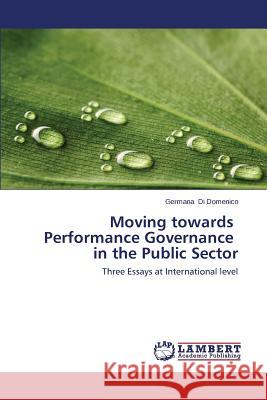Moving Towards Performance Governance in the Public Sector » książka
Moving Towards Performance Governance in the Public Sector
ISBN-13: 9783659312649 / Angielski / Miękka / 2014 / 124 str.
The introduction by the end of the Nineties of Results-based budgeting (RBB) at the United Nations was led by a gradual development in budgetary theory and practice over the previous two decennia and prompted by the desire to increase the transparency and accountability of programme managers so as to enable Member States to assess the mandates and decisions of the Organization. After a brief introduction to the concept of Results-based budgeting (RBB) and the context which led to its adoption at the International level, the general aspects and requirements of performance programmes and budget formulation in the United Nations (UN) system are addressed, also through some examples of practical experience in the field. The research shows that RBB is not just about budgets, but it has the potential to bring about a radical change in strategic management, accountability and responsibilities. Therefore it should be especially useful to professionals, experts and also civil servants delegated to deliver inputs to policy makers in the concerned field.
The introduction by the end of the Nineties of Results-based budgeting (RBB) at the United Nations was led by a gradual development in budgetary theory and practice over the previous two decennia and prompted by the desire to increase the transparency and accountability of programme managers so as to enable Member States to assess the mandates and decisions of the Organization. After a brief introduction to the concept of Results-based budgeting (RBB) and the context which led to its adoption at the International level, the general aspects and requirements of performance programmes and budget formulation in the United Nations (UN) system are addressed, also through some examples of practical experience in the field. The research shows that RBB is not just about budgets, but it has the potential to bring about a radical change in strategic management, accountability and responsibilities. Therefore it should be especially useful to professionals, experts and also civil servants delegated to deliver inputs to policy makers in the concerned field.











